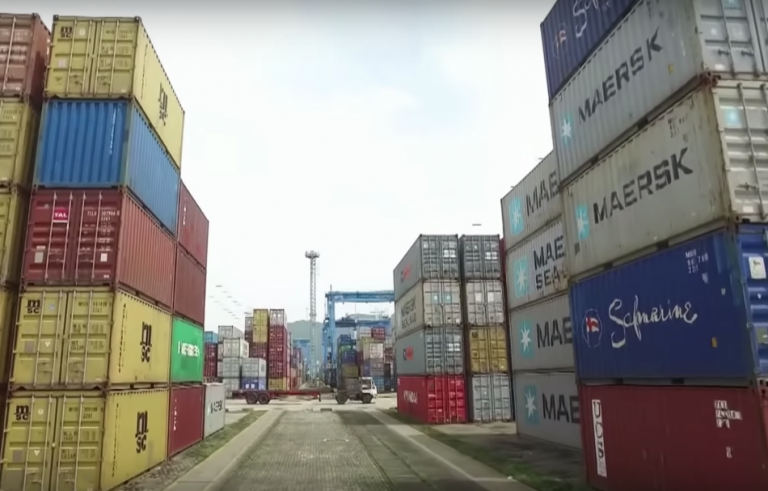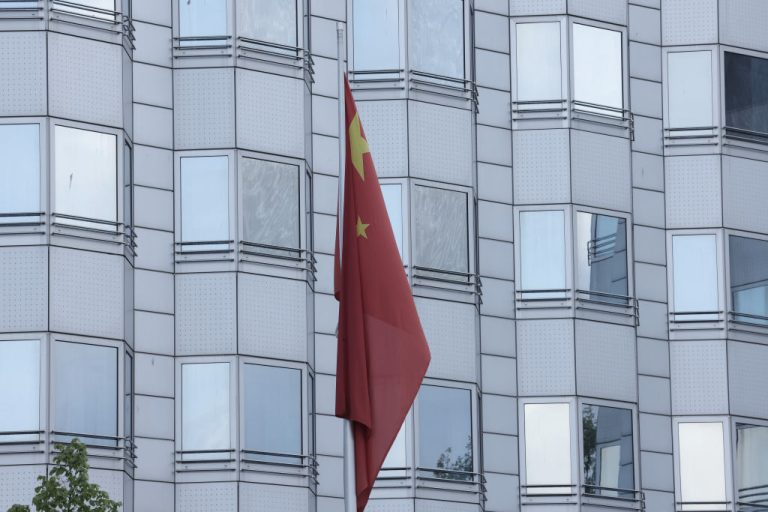Recent trade discussions with China’s Vice Premier Liu He in Washington have yielded important results, according to U.S. President Donald Trump and officials in his administration, but a lasting deal will hinge on whether Beijing can prove it is committed to making things work.
Early last year, the Trump administration began imposing tariffs on Chinese export goods in response to protectionist practices by the country’s communist government. Up until now, U.S. tariffs have been applied to over US$200 billion of Chinese exports.
Liu participated in trade negotiations at the White House on Jan. 30 and Jan. 31, with just one month remaining in the 90-day trade war “truce” — last December, Trump met with Chinese President Xi Jinping at a summit in Argentina, where the two leaders agreed to freeze any increases on tariffs until March 1 in hopes that a deal could be reached.
According to the White House, Liu He brought with him a letter from Xi, which was read to Trump by an interpreter. The letter made reference to the amiable personal relations between Xi and Trump, reminding the U.S. President that “if there is anything, you could always approach me through various means.”
Both Xi and Liu brought up the possibility that China would make large purchases of American soybeans, a major agricultural export that has been subject to Chinese counter-tariffs. Trump commended the offer, saying that it showed goodwill on Beijing’s part.
Success
You are now signed up for our newsletter
Success
Check your email to complete sign up
Liu He also expressed hopes that a deal would be reached, and mentioned that his country was working to crack down on the illegal Chinese drug industry that causes thousands of American deaths each year.

Early last year, the Trump administration began imposing tariffs on Chinese export goods in response to protectionist practices by the country’s communist government. (Image: YouTube / Screenshot)
Enforceability
President Trump and U.S. officials say that any deal with China must include provisions for an enforcement mechanism that would ensure that Beijing keeps its word.
United States Trade Representative Robert Lighthizer said at the meeting: “We focused on the most important issues, which are the structural issues and the protection of U.S. intellectual property, stopping forced technology transfer, intellectual property protection, agriculture and services issues, and enforcement, enforcement, enforcement.”
While Liu He acknowledged the need for enforceability in his remarks, he did not speak publicly about structural economic reforms — a topic that Chinese officials, including Xi Jinping, have been keen to avoid open discussion about.
In a tweet posted shortly after the meeting, Trump remarked: “No final deal will be made until my friend President Xi, and I, meet in the near future to discuss and agree on some of the long-standing and more difficult points.”
The U.S. government has repeatedly demanded that China not only buy more American goods to level the trade relationship, but that it also undertake structural reforms to create a fairer business environment in the long term.
Structural reforms, however, run counter to the CCP’s totalitarian rule and the vested interests of various regime factions. State-owned enterprises dominate key industries and help the Party maintain its socialist control over China’s developing market economy. And to acquire a competitive edge in high-end manufacturing, China has relied on intellectual property theft and forced technology transfers.

President Trump and U.S. officials say that any deal with China must include provisions for an enforcement mechanism that would ensure that Beijing keeps its word. (Image: YouTube / Screenshot)
Political risk
Gauging the effectiveness of the back-and-forth U.S.-China negotiations that have taken place to resolve the trade conflicts is a tricky matter, in large part because behind-the-scenes political intrigue within the CCP means that its leaders can hardly afford to be seen as losing face.
For this reason, observers of Chinese politics must form assessments and see through the mask of official rhetoric — by paying close attention to personnel movements, coded signals, and broader policymaking by the authorities in response to social and economic developments.
The Diplomat, based on Tokyo, noted that while the White House’s formal statement contained “rare positive rhetoric,” and that Trump had lavished praise and respect on Liu, the reactions from the Chinese side were minimal. The Chinese state media avoided mention of Xi Jinping’s letter and downplayed the positive remarks made by Trump.
“China has every reason to strike a deal with the United States now, considering that Beijing is surrounded by domestic challenges and troubles. However, to its domestic audience — particularly to those passionate nationalists that the Chinese government itself has been cultivating for years — Beijing can’t lose face against Washington. Thus, playing down the trade talks seems to be the only resolution for China’s censors,” The Diplomat opined.

The U.S. government has repeatedly demanded that China not only buy more American goods to level the trade relationship, but that it also undertake structural reforms to create a fairer business environment in the long term. (Image: YouTube/Screenshot)
Sinoinsider, a consultancy and analysis group based in New York, has long observed the interplay between Xi, Trump, and their respective governments. A Feb. 1 article compared the U.S. demands for an enforceability mechanism to how Washington had dealt with Chinese tech giant ZTE in a similar manner, after letting up on an initial trade ban that would have crippled the state-run company.
According to Sinoinsider, Xi himself faces “very high levels of political risk even if China reaches a trade agreement with the United States,” since his rivals within the CCP are almost certain to undermine him.
Even if Xi and Trump reach a deal between presidents, the factional impasse could result “in a situation where the Chinese regime cannot meet, or even blatantly flouts” the terms of the agreement.
Follow us on Twitter or subscribe to our weekly email







